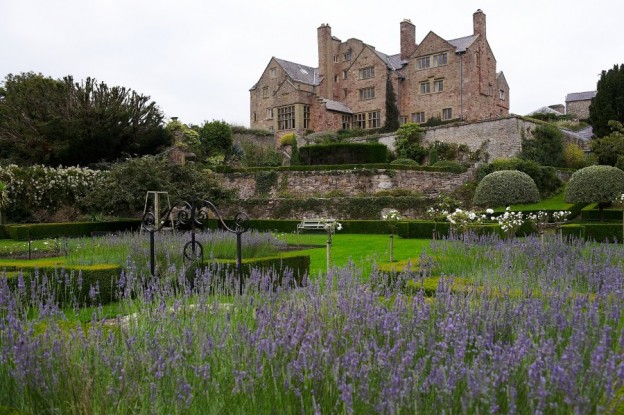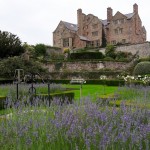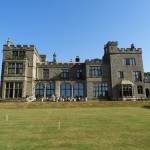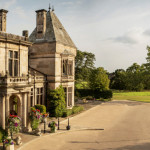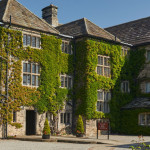Michael Edwards savours aristocratic living on top of a Welsh mountain at Bodysgallen Hall and Spa.
Blankets and sheets. Porridge with brown sugar. Loose-leaf tea and strainers. Silver salt cellars with tiny spoons. Kippers for breakfast. Brass coal scuttles. Roaring log fires. Life at Bodysgallen Hall has the feel of a more refined, bygone era.
Things are done properly high on Pydew Mountain on the Llandudno peninsula. Frantic, frenetic modern life is kept at arm’s length. A long drive meanders upwards from the Royal Welsh Way, through sheep-grazed pastures, thoughtfully putting distance between the busy 21st century and a warm pink sandstone house.
There are no lifts in this Grade 1 listed building of undulating floors, twisting stairways and saggy ceilings. A porter in a tweed waistcoat takes our luggage. Meanwhile, a receptionist guides us, past white orchids and portraits of the great and good from centuries past, to our large room.
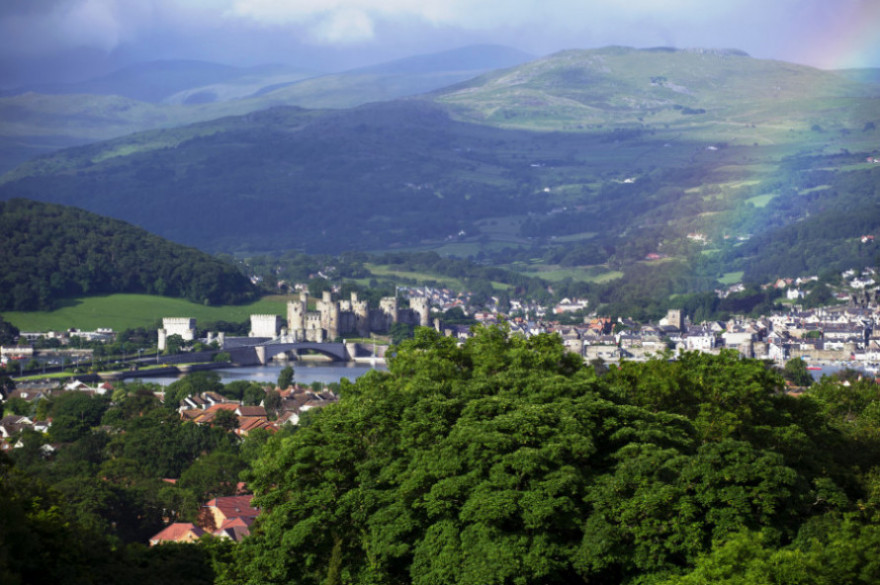
In the dark-wood entrance hall, with its elegantly tiled fireplace, you will hear the chime of a grandfather clock but not the ping of a mobile phone. Their use is prohibited in public areas. There is a certain irony to that ban. Back in the 13th century, Bodysgallen tower was built to enhance communication, acting as an early warning system for low-lying Conwy Castle in an age when the Welsh Marches frequently saw drawbridges hastily pulled up and castles besieged.
Over the centuries, chimneys, gables, mullioned windows, and a hefty entrance door grew around the original tower as a comfortable family home emerged. Then in 1980, the property became one of three Historic House Hotels, with ownership gifted to the National Trust in 2008.
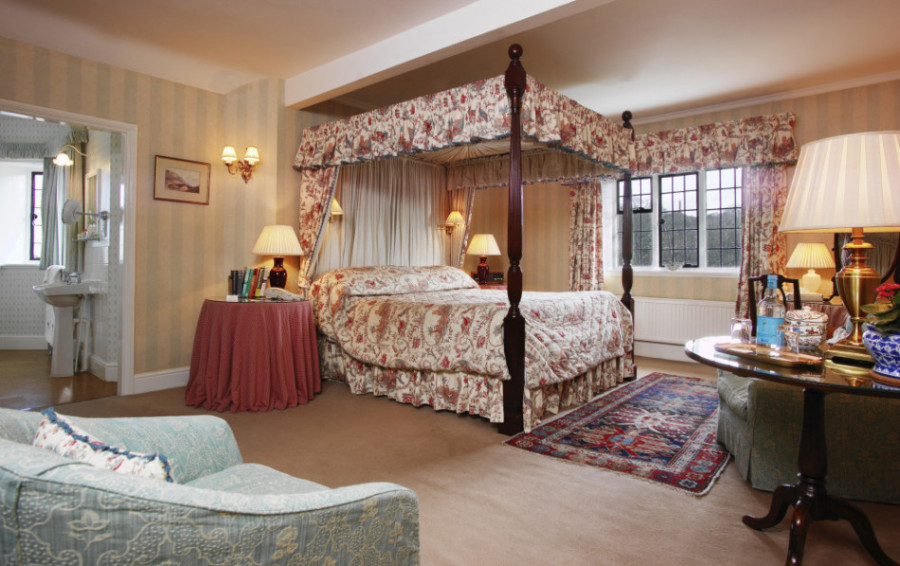
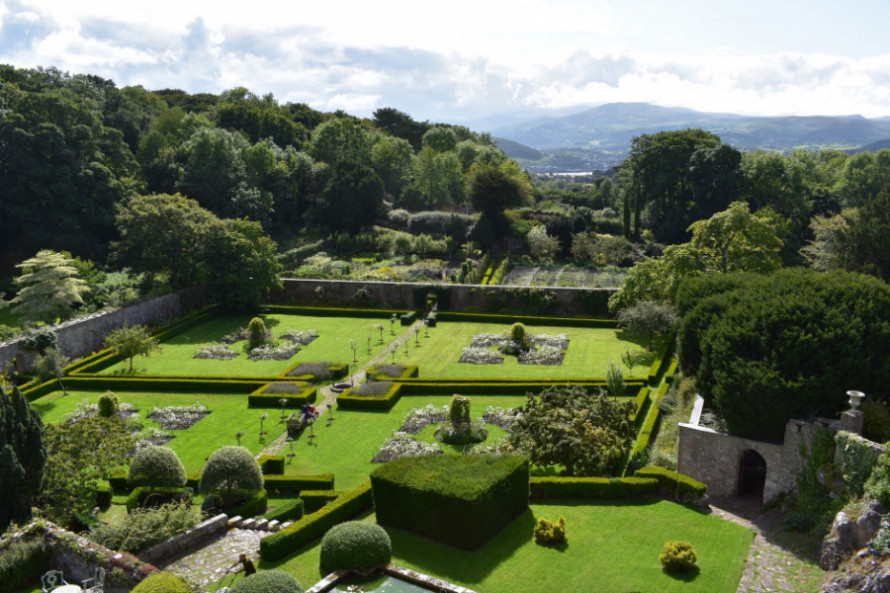
Bodysgallen’ Hall and Spa’s elevated location still commands this scenic slice of North Wales. From our room, we look out over the formal gardens, across emerald, green valleys, to the remarkably intact battlements of Conway Castle. Beyond are the brooding peaks of Snowdonia. Other rooms give coastal views. In fact, it is just a two-mile drive to the resort of Llandudno. A wide, wide promenade is a reminder of how popular the seaside town was in Victorian times with its finger of a pier pointing out into the sea.
Below the Hall sits the restful spa. Open to members, the spa offers far more than is usually found at a hotel spa. A 50 feet swimming pool is long enough for a serious swim and has a spa bath alongside. In addition, there is a sauna, steam room, gymnasium, six spa treatment rooms, clb room and a relaxation room.

Surrounded by 200 acres of gardens and woodland, Bodysgallen Hall and Spa is a paradise for garden aficionados and walkers. The star attraction is a parterre, its intricate geometric pattern best appreciated from the terraces above. Gardeners shape the precise box hedges. Unusually, the parterre is filled with herbs such as sage and bronze fennel. Walled gardens protect these herbs, delphiniums and roses from breezes blowing in from Colwyn Bay. A florist visits to cut flowers for the extravagant displays in the hall. Formal and kitchen gardens flow into lawns and woodland walks.
Those kitchen gardens provide organic fruit and vegetables for a kitchen that starts the day with offerings of a full Welsh breakfast or kippers or salmon with scrambled eggs.
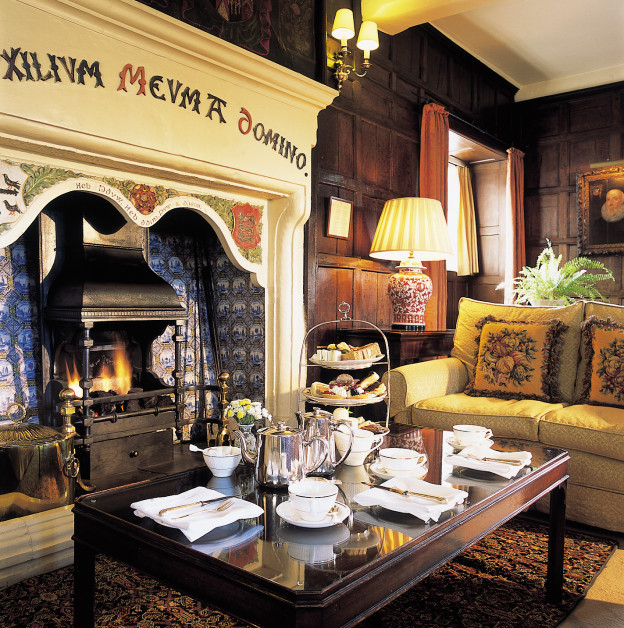
Non-residents often book afternoon tea in the drawing room, hall or library, not just for sandwiches and cakes, but as a ticket to appreciate the splendours of Bodysgallen Hall’s decor and gardens.
There is a grandeur to the AA three rosette restaurant which encourages guests to dress smartly for dinner as they sit at their white-draped linen tables with yet more views across the gardens. Currently, on Monday and Tuesday evenings the restaurant offers a bill of fare menu. From Wednesday to Sunday, Head Chef Abdalla El Shershaby presents fine dining, bringing imaginative touches to fresh local ingredients such as Conwy lamb and wild sea bass.
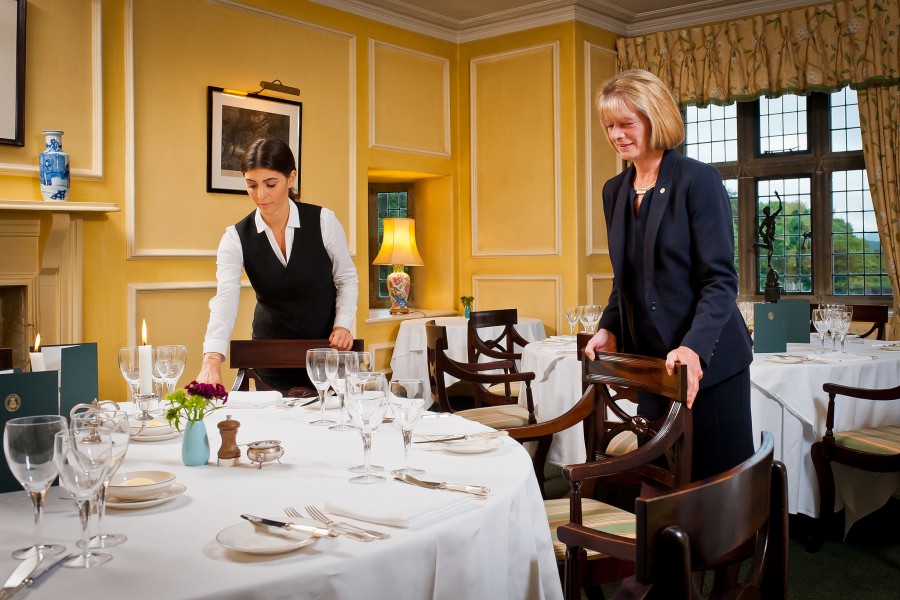
It is a richly evocative setting for a meal. Originally it was thought that Bodysgallen alluded to “the house amongst the thistles”. More recent scholarship suggests that the word derives from “The House of Cadwallon”. As Cadwallon had been King of Gwynedd from 625 to 635 it is a far more appropriate name for a regal house dripping with tradition.
Tell Me More About Bodysgallen Hall And Spa
Bodysgallen Hall And Spa, The Royal Welsh Way,
Bodysgallen Lane, Llandudno, LL30 1RS
T: 01492 584466 E: info@bodysgallen.com
Rooms begin from £250 per night including breakfast.

